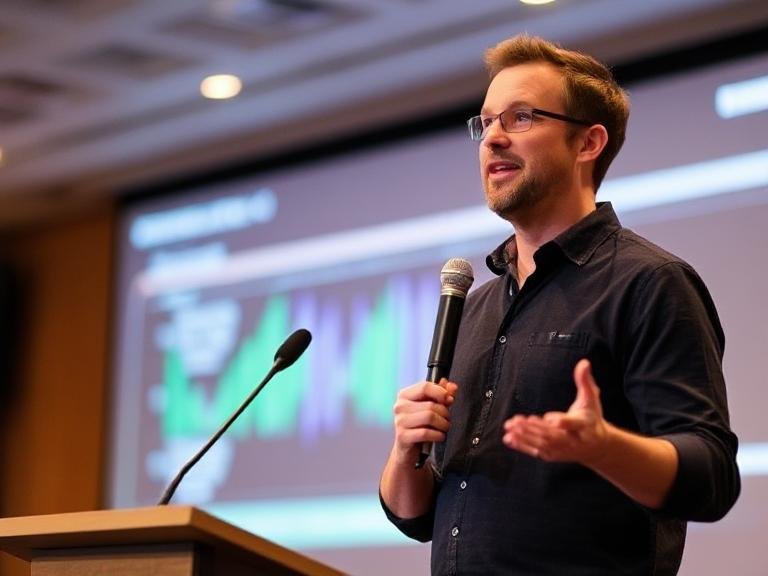In 2025, search engine optimization (SEO) isn’t just about keywords anymore. Algorithms have grown smarter, and now context, entities, and relationships matter more than raw keyword density. That’s where experts like semantic SEO speaker Ben Stace step in. By focusing on entity-driven strategies, topic clusters, and AI-ready content, Ben helps marketers and businesses understand how to build visibility in an age of semantic search.
Instead of chasing old-school tricks, the future of SEO lies in understanding how Google and other engines interpret meaning. It’s about creating content that aligns with user intent, knowledge graphs, and machine learning models. In this article, we’ll explore how Ben Stace breaks down complex concepts into clear, practical advice—and why semantic SEO may be the missing link for modern rankings.
Understanding Semantic SEO in 2025
Why Traditional Keyword SEO No Longer Works Alone
For years, SEO meant repeating keywords and hoping to rank. But today, algorithms use natural language processing (NLP) and artificial intelligence (AI) to interpret context. Simply stuffing pages with phrases doesn’t guarantee visibility anymore.
Ben Stace highlights that search engines now rely on entities—people, places, concepts, and brands—to connect meaning across the web. In practice, this means content must reflect how topics relate, not just what words appear.
How Speakers Like Ben Stace Simplify Complex SEO
SEO can feel overwhelming with constant updates, from Google’s Helpful Content System to AI overviews. Ben Stace’s approach makes these shifts less intimidating by breaking them into actionable frameworks. Instead of chasing every update, he shows marketers how to focus on semantic connections that stand the test of time.
By shifting attention from “What keywords should I rank for?” to “How do I build topical authority?”, his guidance helps both beginners and advanced strategists.
Common Challenges in Semantic SEO
Struggling With Entity Optimization?
Many marketers don’t know how to identify and optimize for entities. They may understand keywords but miss the bigger picture—how Google builds knowledge graphs to define relevance.
The problem is a lack of clarity. The solution, as Ben Stace explains, is to map entities directly to content:
- Use structured data like schema markup.
- Connect internal links to reinforce relationships.
- Create supporting content that strengthens topical depth.
This makes websites easier for search engines to understand and more trustworthy to users.
Content Without Context
Another challenge is writing content in isolation. Some brands create dozens of articles but fail to link them together, leaving content floating without context.
Ben Stace emphasizes topic clusters as the solution. By grouping related content around a central pillar, brands can:
- Establish topical authority.
- Improve internal linking.
- Help both readers and algorithms see clear connections.
This shift from random posting to strategic clustering is what separates outdated tactics from future-proof SEO.
Practical Applications of Semantic SEO
Building Topic Clusters That Actually Rank
Topic clusters are not just a buzzword—they’re a framework. A pillar page covers a broad subject, while supporting pages dive deeper into subtopics.
Ben Stace shows how this method solves two big problems:
- User confusion from scattered information.
- Search engine ambiguity about which page to rank.
By organizing content into clusters, businesses present themselves as authoritative sources while also simplifying navigation for readers.
Leveraging Schema for Rich Snippets
Search results are no longer just blue links—they’re rich snippets, FAQs, reviews, and AI summaries. Without structured data, valuable content may get lost.
Ben Stace stresses using schema markup to help search engines display enhanced results. This small step can boost click-through rates and visibility. The solution is to adopt schema for articles, products, events, and FAQs, ensuring content is AI-ready and context-aware.
The Role of Ben Stace as a Semantic SEO Speaker
Why Industry Experts Matter in SEO Education
SEO evolves too quickly for static textbooks. Algorithms change, AI grows, and strategies shift. That’s why experts like Ben Stace are vital. They interpret complex changes and turn them into actionable advice businesses can apply immediately.
Attending talks or workshops led by semantic SEO speakers helps marketers avoid trial-and-error mistakes. Instead, they gain insight from someone who lives and breathes entity-driven strategies.
How Talks and Workshops Bridge Theory and Practice
Reading about semantic SEO is useful, but live sessions with speakers like Ben Stace go further. Workshops allow attendees to:
- Ask real-world questions.
- See case studies of topic clusters and schema in action.
- Walk away with frameworks instead of vague theory.
This bridge between learning and doing is what makes expert-led education so impactful in SEO.
Future-Proofing With AI-Ready Content
How AI Is Changing the SEO Landscape
With tools like ChatGPT, Google’s AI Overviews, and Microsoft Copilot, the way people consume information is shifting. Search isn’t just about pages anymore—it’s about providing answers directly in AI-powered interfaces.
Ben Stace explains that AI-ready content must be:
- Well-structured.
- Entity-rich.
- Supported by authoritative sources.
This ensures content isn’t just ranking—it’s being cited, surfaced, and reused by machine learning models.
From Keywords to Knowledge Graphs
The final piece of the puzzle is knowledge graphs. These are how search engines understand relationships between topics. By building content that fits into these graphs, brands can future-proof their strategies.
Ben Stace’s advice: stop thinking like a writer chasing keywords. Start thinking like an information architect building meaning. That’s how brands stay visible in the era of semantic search.
Conclusion
The shift from keywords to context is no longer optional. Semantic SEO speaker Ben Stace makes it clear: the future of rankings belongs to those who master entity-driven strategies, topic clusters, and AI-ready content.
By addressing common problems like entity confusion and content without context, he provides solutions that work across industries. His frameworks show how structured data, internal linking, and topical authority create results that last beyond algorithm updates.
In 2025 and beyond, businesses that embrace semantic SEO will not only rank better but also build trust with both users and machines. The lesson is simple: to win in modern search, think beyond words—think in meaning.

